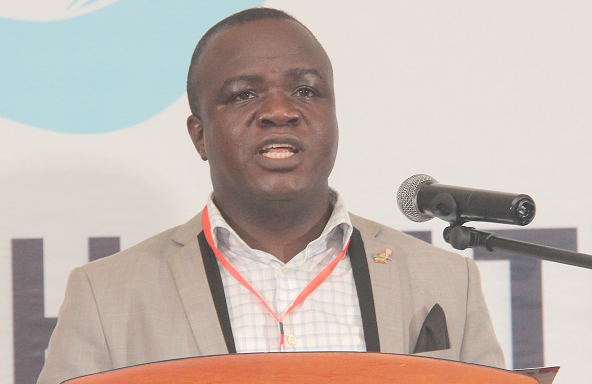
Prioritise mental, psychological needs of vulnerable - Prof. Osei entreats govt
The government must prioritise mental health and the psychological support needs of vulnerable groups in the country as part of the COVID-19 alleviation plan, the Chief Executive Officer of the Mental Health Authority (MHA), Professor Akwasi Osei, has said.
He said there had been some mental health challenges associated with the pandemic as a result of the traumatic experiences of the sudden loss of lives and livelihoods within families and communities, hence the need to pay more attention to the mental and psychological needs of people affected by the disease in the country.
This was contained in a speech read on behalf of the CEO by the Head of Research at the MHA, Mr Samuel Hanu, at a mental health conference organised by the Ghanaian-German Centre (GGC) for Jobs, Migration and Reintegration in Accra yesterday.
Among the objectives of the conference was to create awareness of the availability of mental health and psychological support services by the GGC.
Difficulties
According to Prof. Osei, the pandemic had disproportionately affected vulnerable populations and their mental and psychological well-being, adding that for people living with cognitive, intellectual and psychological disabilities and the elderly, the risk of relapse was high.
He said a COVID-19 protocol such as social distancing had also limited the interaction of victims with caregivers and loved ones, leading to an increase in loneliness and anxiety, as well as the feeling of uncertainty and fear of the pandemic.
He said the situation had created an additional barrier in accessing timely healthcare services.
Strategic plan
In an effort to improve access to healthcare services for the vulnerable population, the CEO said the authority had launched a 10-year strategic plan, which includes the decentralisation of mental health services at all levels of health care across the country.
Others are the integration of mental health services into the general health care system and the provision of holistic care, in line with the biopsychosocial-spiritual model of mental health care.
Prof. Osei said the plan also sought to ensure equity, prioritise the needs of the most vulnerable population, promote gender sensitivity, as well as the availability of resources.
He said it also included a paradigm shift in mental healthcare services to uphold dignity, autonomy, freedom and the creation of equal opportunities for all.
In furtherance of the objective of empowering the vulnerable population, he said, the authority had also adopted the World Health Organisation quality rights initiative to provide in-person and online free training for health professionals and people living with cognitive, intellectual and psychosocial disabilities.
Concerns
The Head of Communications, Gender and Services at the GIZ Ghana, Mr Oswald Felli, said mental health had become a great concern, especially with the prevalence of the COVID-19 pandemic.
He mentioned problems bedeviling the mental health sector in the country to include inadequate resources, over-institutionalisation and medicalisation and over-centralisation of mental health services.
Mr Felli said at his outfit, returnee migrants from Germany were taken through counselling and treatment processes.
